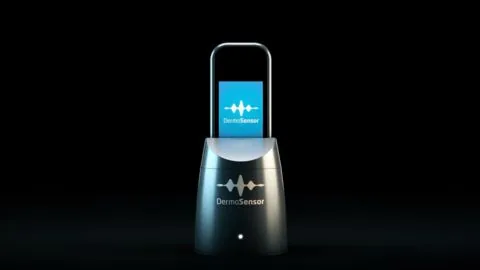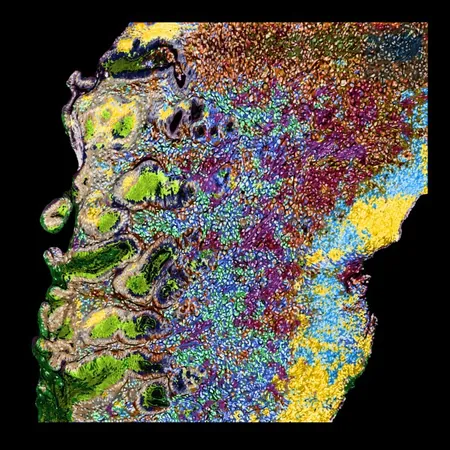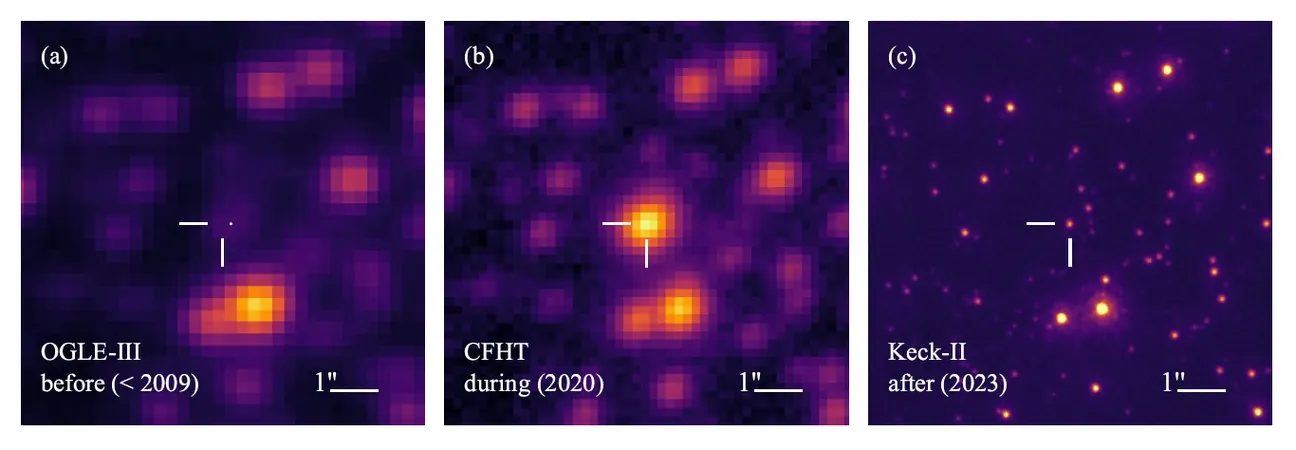
Breakthrough Device Revolutionizes Skin Cancer Detection for Primary Care Clinicians!
2024-09-19
Introduction
In an exciting development for the medical community, DermaSensor Inc. has released compelling data showcasing the effectiveness of its cutting-edge DermaSensor device in differentiating between cancerous and benign skin lesions. This innovative technology could transform the landscape of skin cancer detection, especially in primary care environments where access to dermatology specialists is often limited.
Study Overview
Published in the esteemed Journal of the American Board of Family Medicine, the study provides a vital look into how artificial intelligence is poised to enhance early skin cancer diagnostics. With skin cancer being one of the most common forms of cancer, timely and accurate identification is critical. Unfortunately, many patients encounter significant barriers when trying to see dermatologists, which can delay diagnosis and treatment with potentially life-threatening consequences.
Key Findings
The study evaluated 155 patients across various rural primary care settings, where access to dermatology expertise is scarce. It analyzed a total of 178 skin lesions, revealing that the DermaSensor device exhibited a remarkable sensitivity rate of 90%—a stark improvement over the typical sensitivity of just 40% associated with standard clinical evaluations. Additionally, its specificity reached 60.7%, enhancing the diagnostic precision for clinicians. Notably, for pigmented lesions, the device's specificity soared to 76.9%, aligning closely with assessments from teledermatologists, thus providing an extra layer of assurance to both patients and healthcare providers.
Negative Predictive Value
The findings are groundbreaking, offering a Negative Predictive Value of 98.9%, indicating that when the device recommends “Monitor,” it is highly reliable in identifying benign conditions. This capability is especially important for patients with skin lesions that raise concerns, as it ensures that those in need of specialist intervention are accurately referred in a timely manner.
Expert Insights
Dr. Nathalie Zeitouni, one of the researchers involved and an esteemed Mohs and reconstructive surgeon, emphasized the relevance of such devices in our current healthcare landscape. 'Detecting skin cancer early is crucial, as it can be treated successfully when identified at the right time,' she stated. 'Given the scarcity of dermatology resources in many areas, the DermaSensor allows primary care physicians to be the first line of defense in evaluating skin cancers.'
Implications for Patient Care
The implications of this technology are vast, especially for patients living in rural or underserved regions, who may have limited access to dermatologists. As the healthcare system continues to explore innovative solutions to bridge gaps in care, the DermaSensor device appears to be a pivotal step toward improving skin cancer detection and ensuring that all patients receive the timely care they deserve.
Conclusion
As more healthcare professionals adopt this revolutionary tool, the hope is that it will dramatically improve outcomes in the fight against skin cancer, empowering primary care clinicians to make informed decisions regarding patient care. This breakthrough could indeed mark a significant turning point in how skin lesions are evaluated and treated, ultimately saving lives.






 Brasil (PT)
Brasil (PT)
 Canada (EN)
Canada (EN)
 Chile (ES)
Chile (ES)
 España (ES)
España (ES)
 France (FR)
France (FR)
 Hong Kong (EN)
Hong Kong (EN)
 Italia (IT)
Italia (IT)
 日本 (JA)
日本 (JA)
 Magyarország (HU)
Magyarország (HU)
 Norge (NO)
Norge (NO)
 Polska (PL)
Polska (PL)
 Schweiz (DE)
Schweiz (DE)
 Singapore (EN)
Singapore (EN)
 Sverige (SV)
Sverige (SV)
 Suomi (FI)
Suomi (FI)
 Türkiye (TR)
Türkiye (TR)